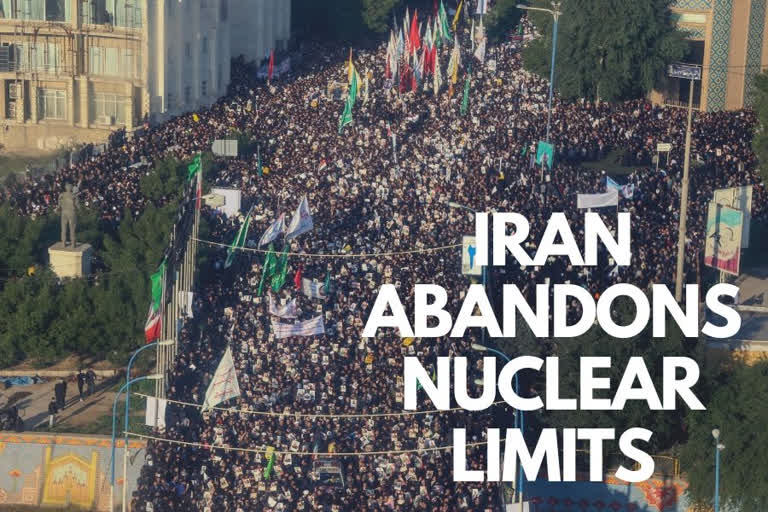Iran: The blowback over the U.S. killing of a top Iranian general mounted on Sunday as Iran announced it is abandoning the limits contained in the 2015 nuclear deal and Iraq's Parliament called for the expulsion of all American troops from Iraqi soil.
The twin developments, if they come to pass, could bring Iran closer to building an atomic bomb and enable the Islamic State group to stage a comeback in Iraq, making the Middle East a far more dangerous and unstable place.
Iranian state television cited a statement by President Hassan Rouhani's administration saying the country would not observe limits on fuel enrichment, on the size of its enriched uranium stockpile and on its research and development activities.
"The Islamic Republic of Iran no longer faces any limitations in operations," a state TV broadcaster said.
In Iraq, meanwhile, lawmakers voted in favor of a resolution calling for an end of the foreign military presence in the country, including the estimated 5,000 U.S. troops stationed to help battle the Islamic State group.
The bill is nonbinding and subject to approval by the Iraqi government but has the backing of the outgoing prime minister.
The two decisions capped a day of mass mourning over Iranian Maj. Gen. Qassem Soleimani, killed in a U.S. drone strike in Baghdad on Friday.
Hundreds of thousands of people flooded the streets in the cities of Ahvaz and Mashhad to walk alongside the casket of Soleimani, who was the architect of Iran's proxy wars across the Mideast and was blamed for the deaths of hundreds of Americans in suicide bombings and other attacks.
Iran insisted that it remains open to negotiations with European partners over its nuclear program. And it did not back off from earlier promises that it wouldn't seek a nuclear weapon.
However, the announcement represents the clearest nuclear proliferation threat yet made by Iran since President Donald Trump unilaterally withdrew from the accord in May 2018. It further raises regional tensions, as Iran's longtime foe Israel has promised never to allow Iran to produce an atomic bomb.
Iran did not elaborate on what levels it would immediately reach in its program. Tehran has already increased its production, begun enriching uranium to 5% and restarted enrichment at an underground facility.
While it does not posses uranium enriched to weapons-grade levels of 90%, any push forward narrows the estimated one-year “breakout time” needed for it to have enough material to build a nuclear weapon if it chose to do so.
The International Atomic Energy Agency, the United Nations watchdog observing Iran's program, did not immediately respond to a request for comment. However, Iran said that its cooperation with the IAEA “will continue as before.”
Also read: Iraq summons US envoy over 'violation of sovereignty'



